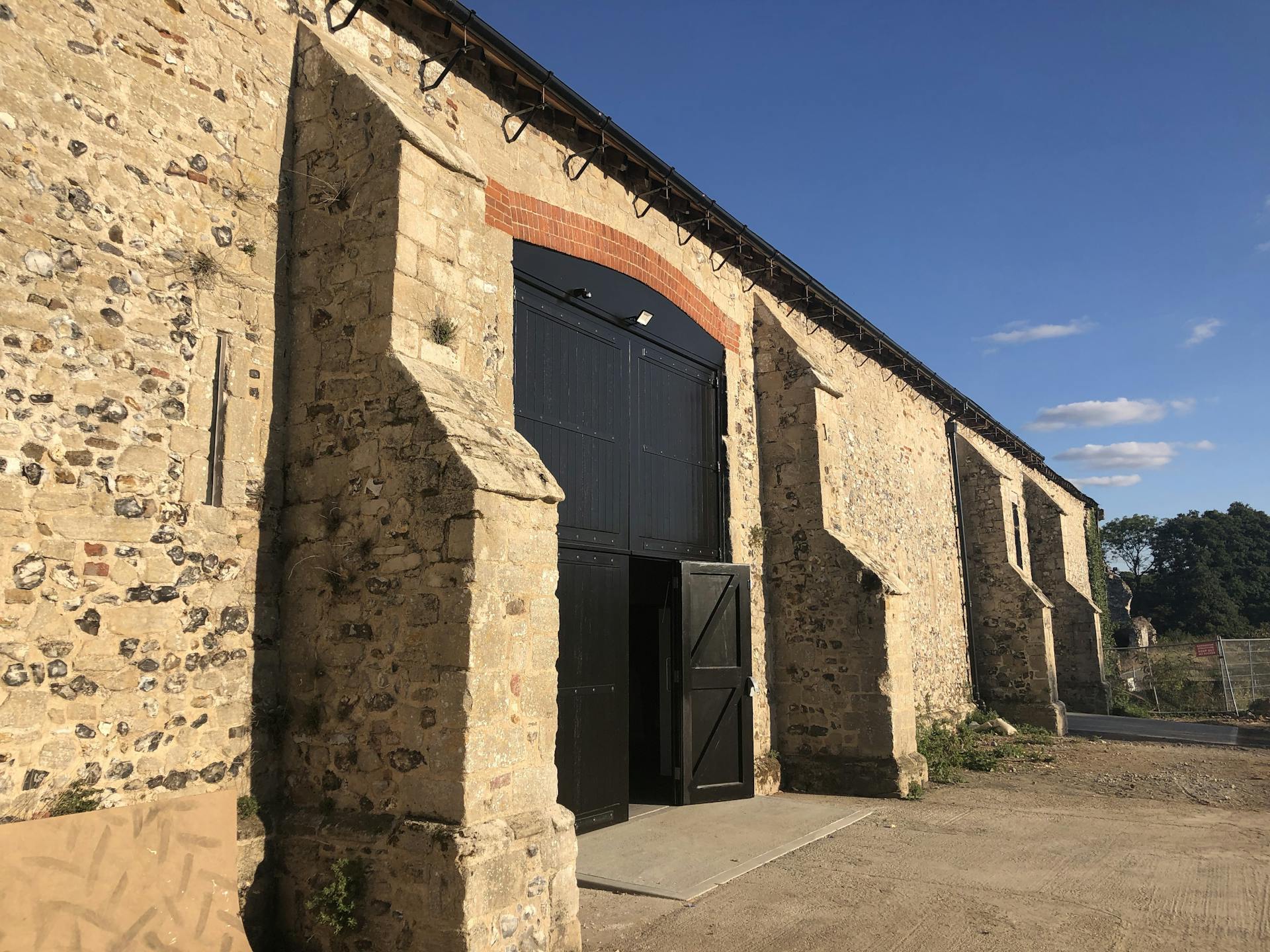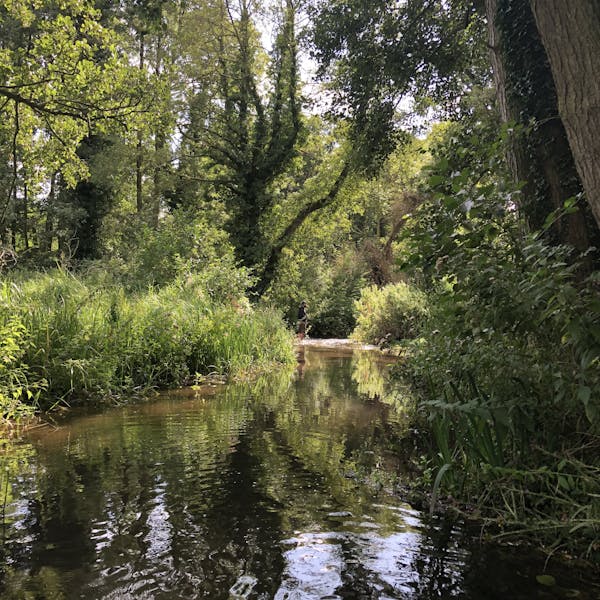Bedrock – Water – Part 1
Water
Water is the first in a four-part series about the bedrock upon which Duration is built. Elements of Water, Wood, Metal and Stone reveal the pioneering technology built into our foundations to stay true to our ethos of ‘beers that belong’. Read on to learn how our sense of place informs all we do.
Let’s put the grains, hops and yeast aside to focus on beers biggest ingredient, water. Treating our water to improve our beers in flavour and consistency was an essential consideration, especially given how hard Norfolk water is. Water is a huge bi-product of the brewing process with approximately 9 litres of water used for every litre of beer produced. We were quite literally forced by site constrains with drainage to reduce, recycle and reuse our waste-water and in doing so realised how hugely important it is to understand and address our impact.
Geology and an irrefutable sense of origin exist in waters, revealed flavour profiles – from pillow soft to heavily chalk based. Historically it was the water profiles allowed distinct beer styles to flourish and gave the beer it’s regionality place to place – ever wonder why London made porters but pilsners flourished in Czechoslovakia?
East Anglia, flat terrain, easterly winds and salt from the sea make for diverse wildlife and strong ecosystems. Our soil is chalk and flint rich, agriculture thrives here. Our soil structure and irrigation is a boon to growing the world’s best barley alongside lots of the nations staple crops. Water springs up through our soil some of the most carbonate heavy in the UK. Less ideal for delicate lagers and pales, but our real starting point when considering this bountiful spot was where we wanted to place our farmhouse brewery.

West Norfolk is mostly woodland and arable land
Inbound our water goal was to remove the carbonates undesirable to making tasty beer and to preserve our brewing equipment from clogging thick with calcium. Reverse osmosis (RO) the usual option breweries adopt to clean inbound water mechanically – pushing it back and forth across a sieve. We wondered if a more sustainable system existed that could clean brewing water to a specific profile, not a stripped base point. We felt there must be a system that could get better results using less energy and water consumption than RO.
Outbound the challenge was far more complex. With no mains drainage infrastructure to connect to at our remote location, our capped but ambitious growth plan needed to put ensure only clean water flowed back to our watercourse a protected chalk river. Knowing we had to manage our biggest by-product ourselves we had to find a solution. Archaeological restraints negated a reed bed system and this got us thinking – what if we didn’t see the ‘waste’ in our water.

The protected chalk river Nar runs past Duration’s site
Currency comes where we place value be that salt, knowledge or gold. In nature, water is always the main life-giver and a cyclical key commodity to all life forms. Us humans have neglected that loop with an out of sight mentality allowing dirty emissions and vast contamination. What if we found a way as a factory to restore that loop cleaning our water, harvesting the runoff from the brewing process and reusing it as rinse water? Heeding the cautionary learning of Dr Zeus – The Lorax, and with limited options, we found two systems to provide cleaner, more efficient and more sustainable ways to bring water in and out of the brewhouse.
Voltea and Enereau both treat water supplies for clients in the USA and Europe. Voltea’s capacitive di-ioniser will clean inbound water using direct electrical current instead of RO. Enereau uses an aerobic ‘living gill’ in a membrane bioreactor to clean and collect outbound water for reuse. Duration is the first UK brewery to adopt both of these companies pioneering technologies and we are proud to share a little about them both with you
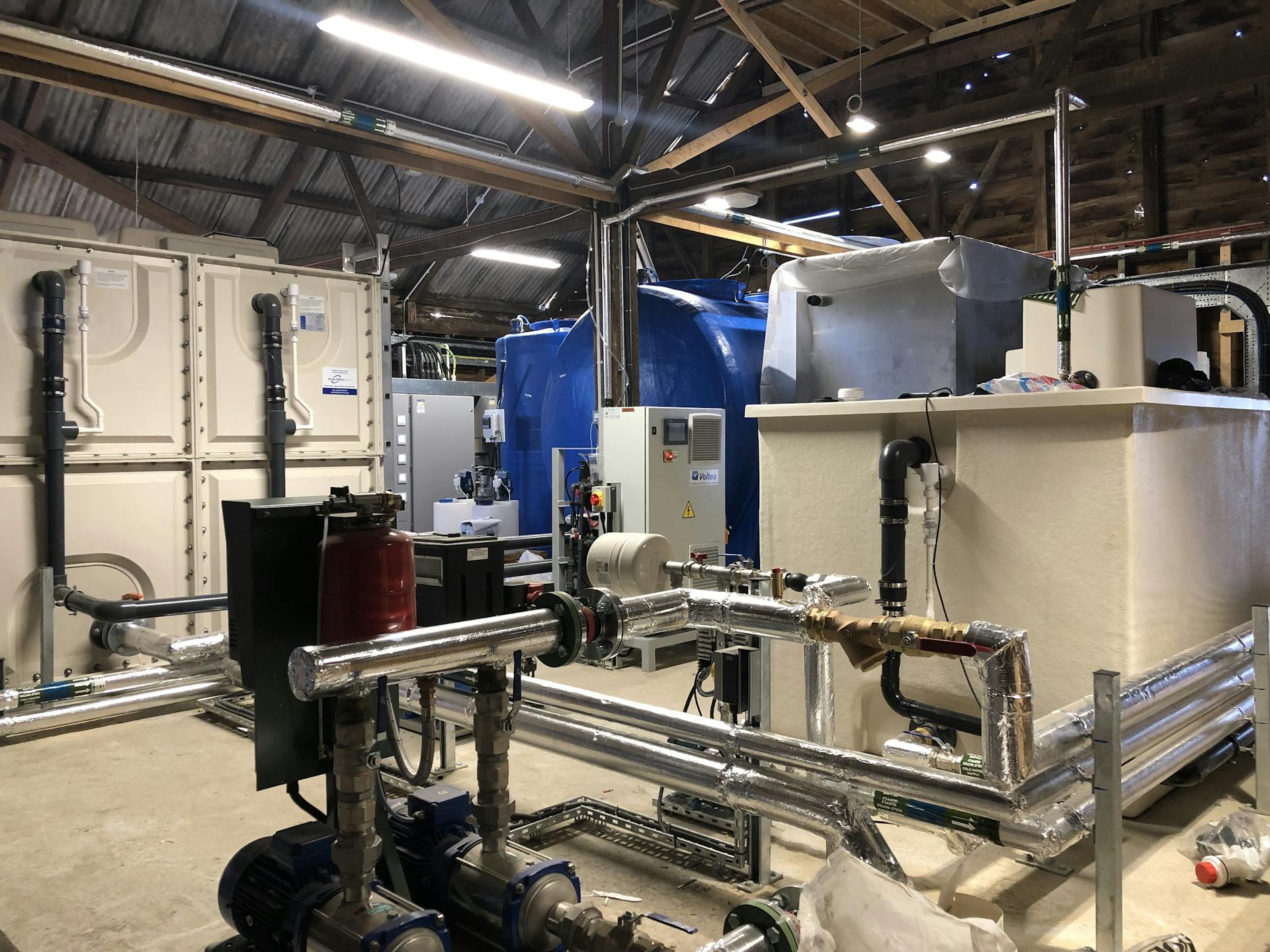
Water treatment plant to clean inbound and outbound water
Enter Dewitt Dees CFO, Co-Founder at Voltea…
Voltea’s Client Challenge: (for inbound cleaning of brewing water)
To attain specific and consistent water profiles for various brews with operational ease moving away from manually adjusting the total dissolved solids and conductivity of the water before the brewing process. To use sustainable technology, that not only gives consistent results but is efficient to run, reduces wastewater and occupies a small footprint.
Voltea’s Solution:
Through the use of direct electrical current Voltea’s patented CapDI technology purifies water without the need to add back minerals as after a typical reverse osmosis (RO) process that entirely strips the water. Voltage can be tuned to effectively meet any water recipe.
The process is straightforward, delivering consistent outcomes more efficiently. Daily operating costs are greatly reduced in three ways:
- Modules last 5-7 years, far longer than RO’s more disposable cartridges that clog faster.
- Electrical consumption can be up to 40% lower than standard RO.
- Overall freshwater consumption and wastewater sent to the drain (or in Duration’s case recaptured to be used for cleaning) are both reduced.
Voltea’s Comment:
“The entire Voltea team is very excited to work alongside Duration. Their dedication to finding a sustainable water solution that met their high standards meant becoming the first UK brewery to deploy this technology”.
“We have always known that the ability to tune your water quality could be a big benefit to the brewing industry and this installation will go a long way to proving it. Duration is our first brewery install in all of Europe and we look forward to a long and successful partnership.”
– Dewitt Dees CFO and co-founder of Voltea
Duration was thrilled to see the CapDi technology scaled from larger commercial applications to work for smaller companies. With a similar cost outlay to reverse osmosis, the benefits of being a more attuned system, with reduced operational costs and sustainability aspect made it a far better option for us.
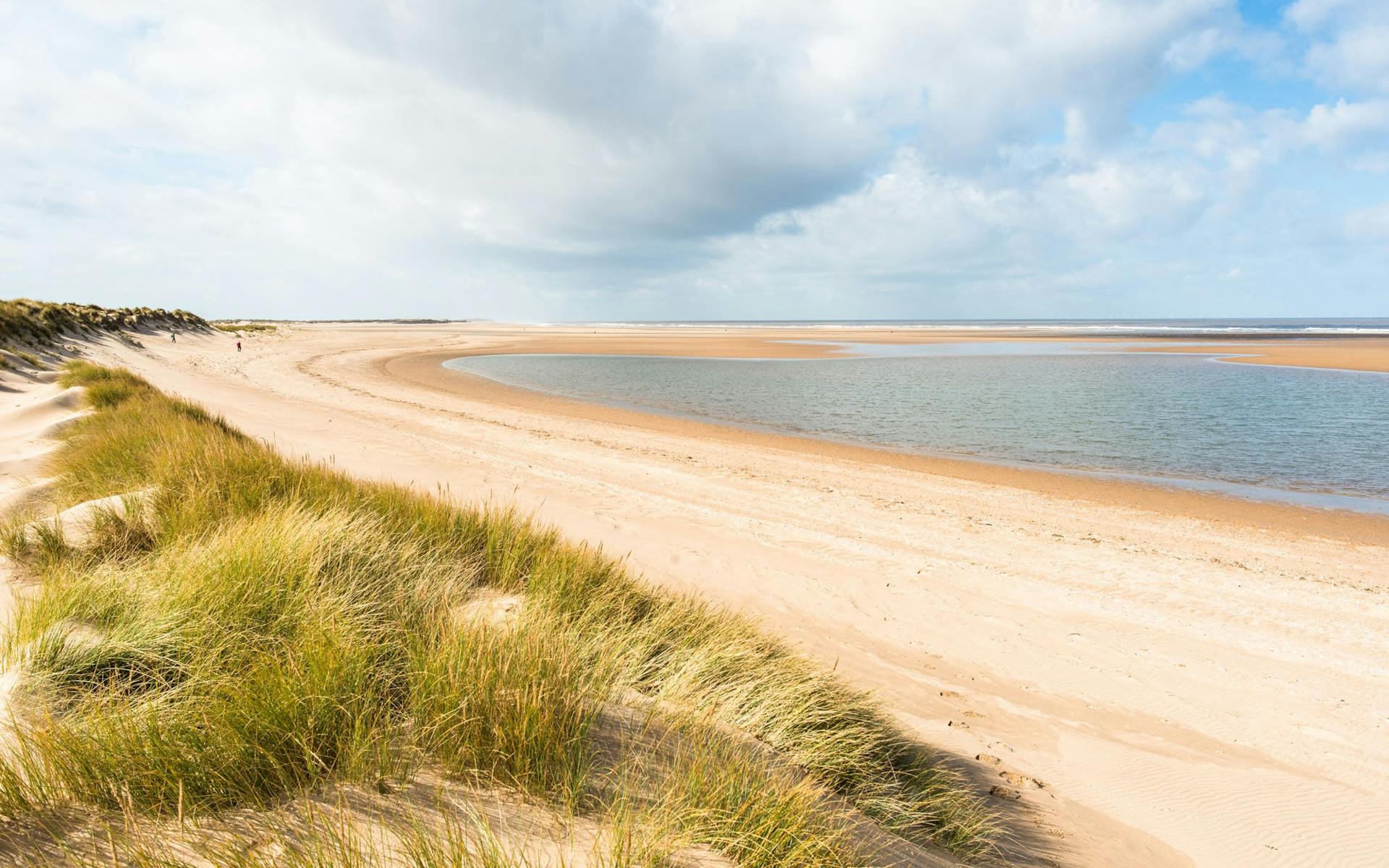
North Norfolk’s stunning beaches are close to the brewery
Wastewater in brewing is not just abundant, it is full of particulate and chemical that swills into sewers and out to wastewater plants. With no sewers to connect to we needed a solution that planning departments and the environment agency would pass feeding back to our protected river on our limited budget. If that solution could capture and reuse water many times over – all the better. Going ‘green’ was a very real need based on a site constraint and it is one we are thankful for. We love our landscape and learning what goes into soil and watercourse, especially in an agricultural setting matters way beyond box-ticking. Water is one way we as essentially factory on a farm setting, can be good stewards for our environment.
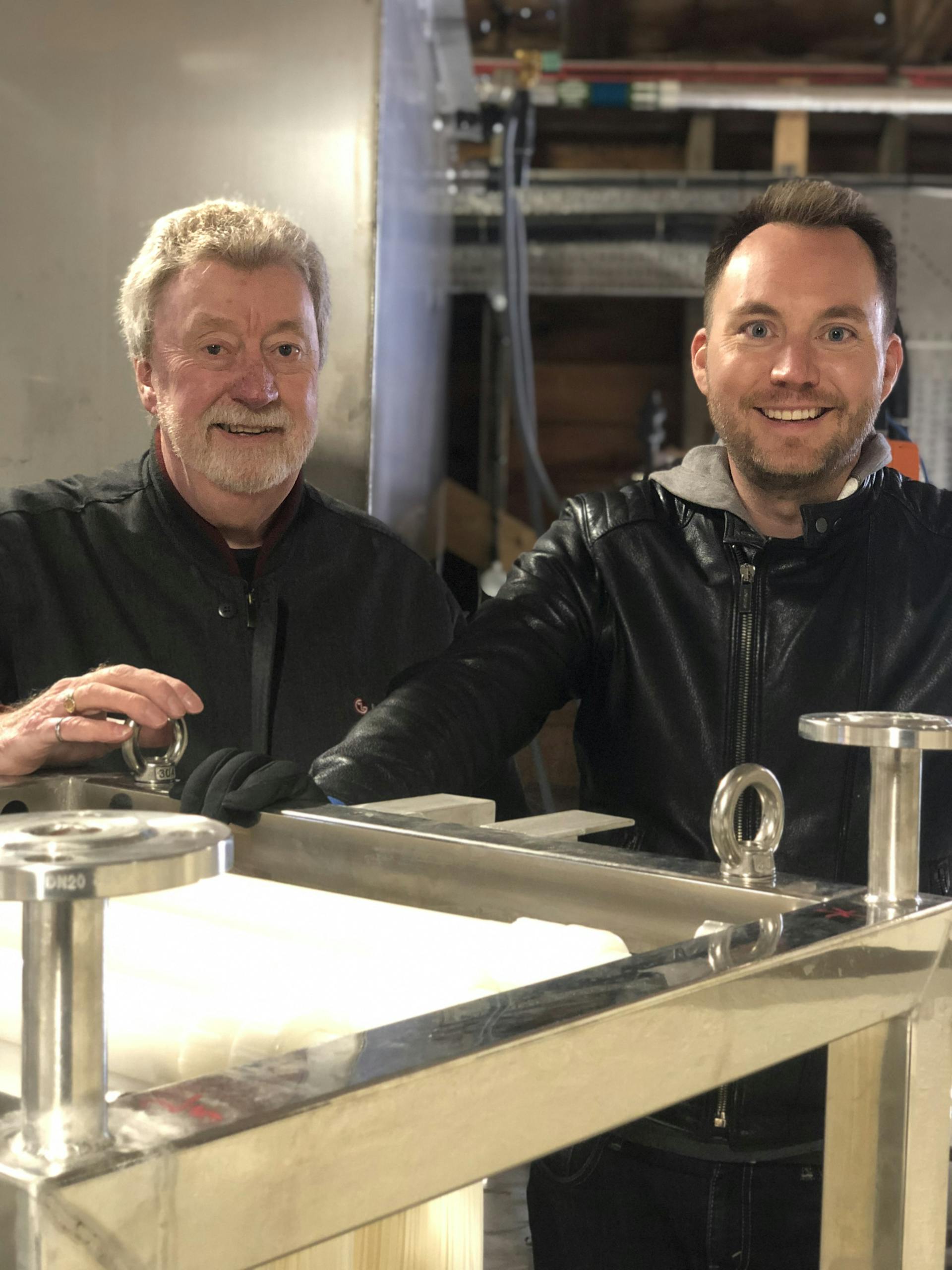
Jim & Craig Hotchkies in front of their ‘gill’ membrane in the membrane bioreactor
Enter Craig Hotchkies COO and Co-founder of Enereau, who install systems for places where water consumption is essential but water scarcity is high such as vineyards, casinos and golf courses.
Enereau’s Client Challenge (outbound cleaning and reuse of wastewater)
Situated in a historic rural location, Duration’s site was without access to mains drainage sewer connections and adjacent to a protected water body, the Chalk River. To build a sustainable brewery that would not adversely impact the local environment, Duration needed to build on-site wastewater treatment that would treat effluent from the brewery (e.g. CIP (Clean in place) water, run-off from packaging lines, etc) to a higher quality than the influent water.
Additionally, the brewery needed to find a system with a footprint that was small enough to fit inside the existing site structures and not consume valuable space required for operations.
Enereau’s Solution
To meet the on-site wastewater needs of the project, the Duration team reviewed many available technologies ranging from natural ecosystems and trickling filters to a variety of different anaerobic and aerobic solutions. From this analysis, Duration determined the Enereau Membrane BioReactor (MBR) to be the best available technology for the application.
Able to run at much higher mixed liquor concentrations than conventional solutions, the footprint of the Enereau MBR is less than 1/3 of the space required for alternative technologies. Additionally, the combination of aerobic biology with advanced membrane filtration creates an almost absolute barrier to contaminants entering the environment from the brewery. The resulting effluent from the wastewater plant will be to a quality standard that is high enough for reuse within the brewery, providing Duration with a sustainable and renewable source of reuse water for the process water requirements of the facility.
Enereau’s comment
“We were excited to be selected by Miranda and Bates to provide the on-site wastewater solutions for Duration. While the site offered many challenges, from stringent environment discharge requirements to tight space constraints, we were proud to work with Duration to develop a Membrane BioReactor (MBR) solution that meets their needs at start-up and to scale with the future growth of their brewery”.
“The project at Duration is an ambitious vision from multiple dimensions, not the least of which was to create a brewery that would not only co-exist in the natural setting but also provide the operator with a continuous source of reuse water. This has resulted in the first MBR for a craft brewery in the UK and we hope it will lead to other breweries looking at options to reduce their water footprint while improving the sustainability of their operations.”
– Craig Hotchkies COO and Co-founder of Enereau
Seeing water as a valuable commodity to understand and work in the best possible way into our beer or out to nature again, got us to the right technology. It feels good to know our water will be the best it can be for our beer, and that we are being true to a goal we set early on – to always strive to give back more than we take from our moment in time. As a farmhouse brewery and a modern production facility, we wanted to respect our surroundings, our protected river and our water treatment plant is one small way we could build for a better future.
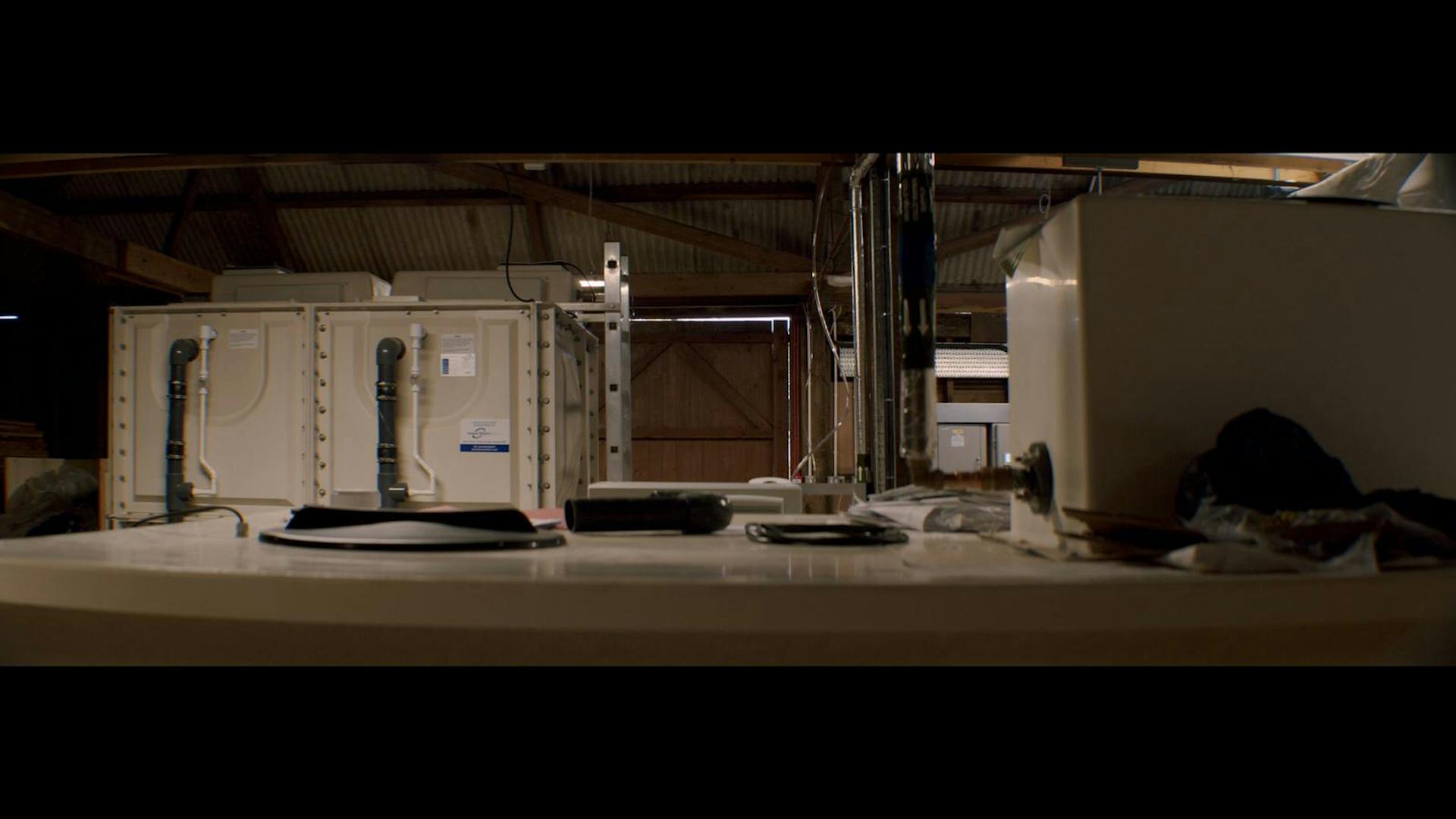
Three of Durations six tanks in the water treatment plant
We are hugely proud to have partnered with Voltea and Enereau as the first brewery in the UK, in Voltea’s case in Europe to deliver some pretty pioneering and sustainable technology – Inbound it will help the beer taste better and protect our equipment. Outbound being sustainable, protecting our wildlife and natural landscape and being less wasteful feels great too!
Our ‘Why’ again: To make good beer, with good people in a way that respects our surroundings. The cost may be high but the reward is great.
If you enjoyed this first post from our Foundation series on Water. Next, we’ll discuss Wood and how our coolship and foeders have been custom designed to help make some of our more premium, niche beers better. Working with 6ix Fab Dec and Foeder Crafters of America along with using locally grown estate wood we are really proud to be pushing the boundaries of what provenance and terroir can mean for beer makers and how our new technologies in wood will help form our ‘beers that belong’.
